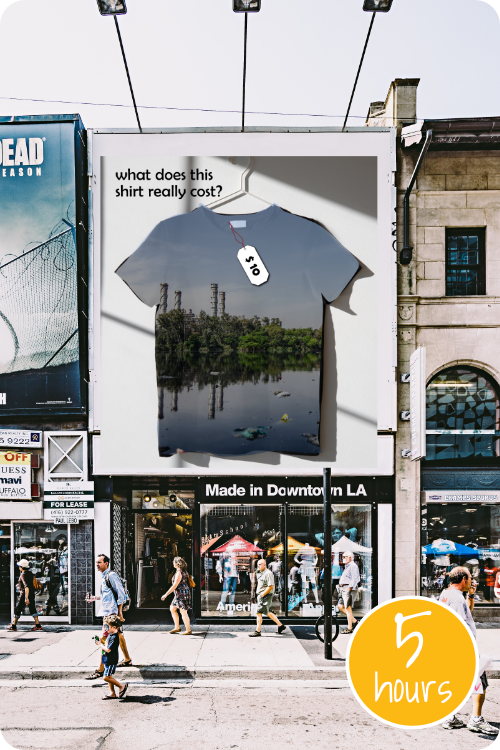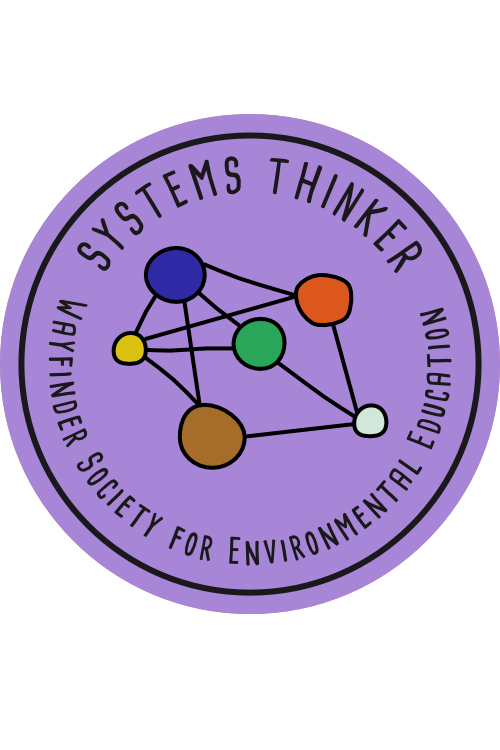
Photo credit: Nick Collins on Unsplash
Your mission
Train yourself to detect greenwashing and understand its complexities.
Time Commitment: 3 Hours
Range of Impact: Home, Global
Why this Action is impactful
Have you heard of greenwashing before? This deceiving marketing strategy can be easy to spot once you recognize the signs. Simply put, greenwashing is when marketing and advertisements are used to give a a false impression of how a product impacts the environment. It’s a complicated subject, but it’s important to critically analyze companies’ marketing and business decisions to make sure consumers and companies are doing their best to address the environmental challenges we face.
What to know before getting started
We know our planet is in trouble. So, people are looking for products and companies that are trying to do good. The tricky part is deciphering which products and companies are really reducing their negative impact on the environment, and which aren’t. This is not easily measured, calculated, or tested. In fact, there may even be companies who think they’re doing the right thing, but haven’t realized the unintended consequences they may be creating.
Sounds overwhelming, we know. But let’s get to the root of it. Humans are all trying to survive and live their lives. This means we’ll be using resources and generating waste – there’s no way around it – it’s in the laws of thermodynamics! What we need to focus on is doing the best we can, holding each other accountable, limiting the negatives, and being transparent about our flaws and goals.
What to do
- Pick a product or service that has some sort of environmental claim – verbal, written, or pictured – in their marketing.
- Use the investigation questions in the Track section below, to assess the company’s marketing strategies for potential greenwashing. You can use this worksheet to take notes.
To analyze a company’s marketing for greenwashing, you’ll need to check how their marketing lines up with their actions and values. You’ll need to look at how they advertise their product, investigate whether their claims are true (to the best of your ability), and compare that with how their product actually meets those claims.
Examples of misalignment:
- A company calls their clothing sustainable, but only 1 of 50 shirts they offer is made using cotton instead of polyester.
- A company calls their single-use plastic-lined paper cups nature-friendly (because it’s paper) but doesn’t mention that they aren’t compostable or recyclable (because of the thin plastic lining).
- A company advertises their bottled water using video and pictures of pristine nature. There is no evidence that the company follows any sort of environmental standards or values, and their bottles pollute the environment at every stage of production and waste disposal.
Examples of complicated situations:
- A clothing company makes athletic wear out of recycled plastic bottles and markets them as eco-friendly, saying they are preventing plastic pollution.
- This is complicated because they might have good intentions, but they might also be playing off their knowledge that lots of people are aware of plastic pollution, and using that to their advantage by marketing it. In reality, their clothes probably still shed plastic microfibers into the air and water. Also, shouldn’t those plastic bottles be turned back into plastic bottles instead of downcycled into athletic wear?
- A drink company is trying to reduce their plastic footprint so packages their drinks in a carton instead. They market their product as better than bottled drinks.
- This is complicated because the company may think they’re doing the right thing, but cartons are actually less recyclable than simple plastic bottles because the carton material is made of layers of paper, metal, and plastic that aren’t easily separable.
Tips and suggestions
Greenwashing is exactly as wishy-washy as it sounds. Often it is difficult to find publicly available information and data that either supports a companies claims or proves that greenwashing is taking place. Also, measuring how environmentally friendly a product is, is not an exact science, and depends on many factors, from which environmental factors are prioritized over other, to the way impacts are measured.
There often isn’t a wealth of information about a product on a company’s website. If you’re having trouble finding the information you need, try contacting the company by email, phone, or though their website or social media. Companies hold their customers in high esteem – they care about what you think – otherwise they wouldn’t make any money at all. Make sure you’re polite, and have your questions ready. If the person can’t help you, don’t be afraid to ask to be referred to someone who can.
A company’s intentions mean a lot. Maybe they are truly trying to do better, but it’s a slow progress because the other companies they rely on aren’t at their level of sustainability. Also, a company’s transparency is telling. Companies really doing their best don’t have a lot to hide.
With all the environmental and social challenges we face on this planet, it can feel like consuming anything is too much. But it’s possible for companies to be regenerative – which means they’re giving back more than they take.
Track your contribution
To submit your work and get recognized for your contribution to your community, complete the form below. If we approve your submission, you’ll be awarded 3 Hours.
Do another Action
Check out our other Actions that build off of this one!
Signal the Alarm on Planned Obsolescence
Dig into a strategy companies use to maximize profit by creating waste.
Create an Anti-Ad
Illuminate the invisible costs of the stuff we buy.
Systems Thinker Pathway Badge
This Action is part of the Systems Thinker Pathway Badge. Complete the Pathway to earn the Badge!




